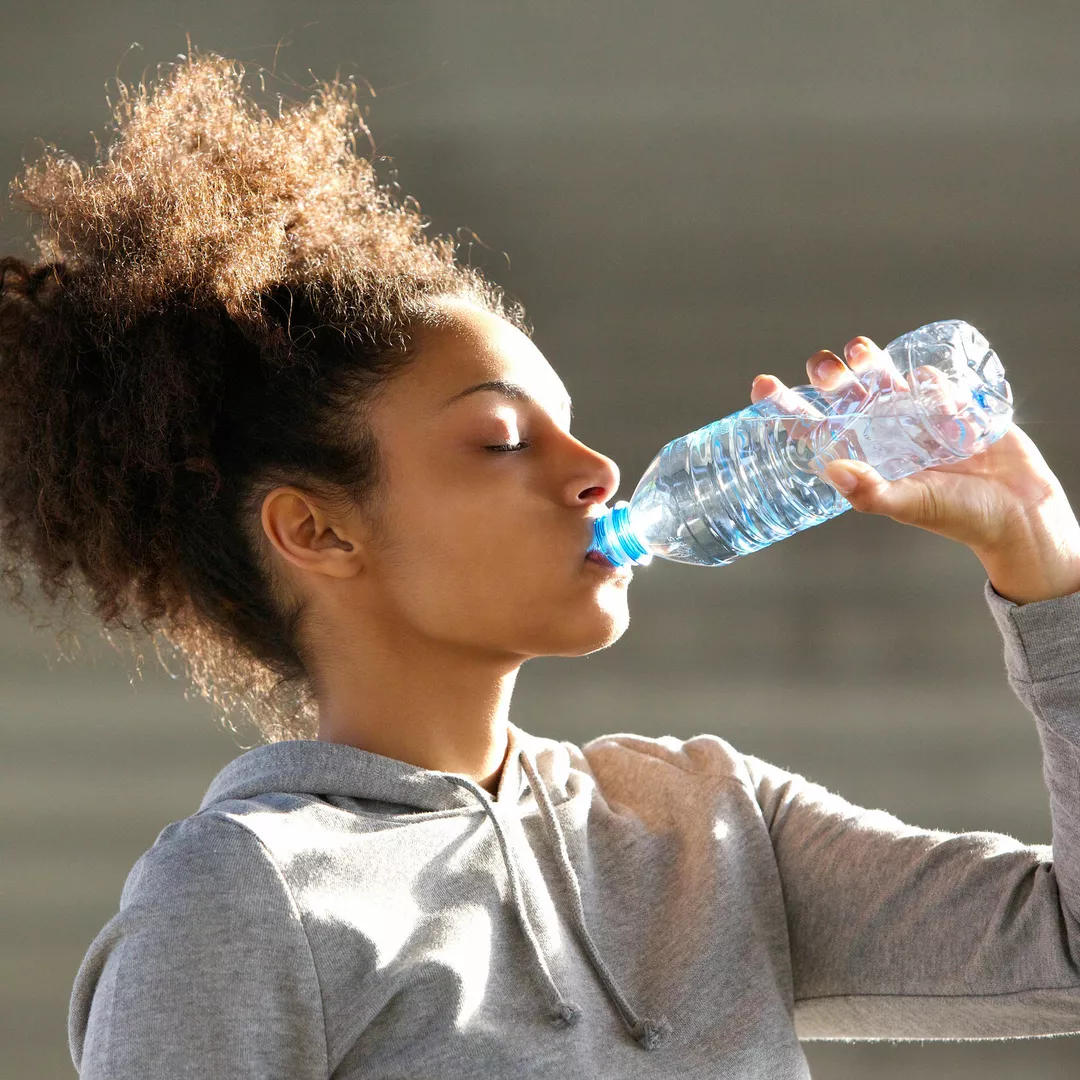Water and heart health
Water is the single largest component of the human body, making up 50 to 80 per cent, and it plays a vital role in most bodily functions. Proper hydration is essential for your heart.
Your heart is constantly pumping blood through your body. Beating on average 72 times a minute, it pumps around 7,600 litres every day. Staying well hydrated helps your heart do its job and more easily pump blood through the blood vessels to your muscles. This in turn helps your muscles work more effectively.
Dehydration and heart rate
What is dehydration?
Dehydration occurs when more fluid is used or lost than is taken in by the body. If this lost fluid is not replaced, this can lead dehydration, and the body does not have enough water and other fluids to carry out its normal functions.
Dehydration can be due to illnesses like severe diarrhoea or vomiting, certain conditions and medications that increase the risk of dehydration, or if not enough water is drunk during hot weather or intense exercise.
How does dehydration affect heart rate?
If you are dehydrated, the amount of blood circulating through your body decreases. Your heart will try to compensate by beating faster, increasing your heart rate. This places strain on your heart as it needs to work harder than normal.
How much water should you drink each day?
It seems like an easy question, but there isn’t a simple answer.
Several factors have a bearing on this, such as your body composition, your metabolism, diet, climate you live and work in, and even your clothing. We can’t survive very long without water, and even mild dehydration can lead to fatigue, headache and a bad mood.
The recommended intake of fluid is between 2.1 to 2.6 litres for adults and between 1 to 1.6 litres for children every day. The recommended total intake per day, which includes fluid from food, is between 2.8 and 3.4 litres for adults and 1.4 to 2.2 litres for children.1
Do other liquids count?
While all fluids can count towards your daily total (even those from food, tea and coffee), experts suggest drinking plenty of water and limiting beverages with added sugars and alcohol.
Should you drink more water when you’re more active or exercising?
Put simply, you should be guided by your own thirst. Prolonged physical activity and exposure to heat can increase your fluid or water needs. It is all a case of balance. The more water you use, or lose, then in theory the more you should replace to be in water balance.
Aim to drink one and a half times the fluid you lost while exercising, spread out over the following several hours. This is because you continue to lose fluid through sweating and urination for some time afterwards.
Should you drink sports drinks when you exercise?
There is little evidence that we ‘need’ anything in sports drinks if we maintain a varied, healthy and adequate diet. While there has been some evidence that sports drinks may improve performance and speed up the recovery process between exercise sessions, for most everyday people, they’re not necessary.
Most importantly, don’t get too caught up in the numbers. Hydration is a dynamic process, so a snapshot view of it wouldn’t be accurate. Some days we drink more, some days less. Some days we’re active, and other days we’re not.
After even a day of not having enough water, people usually catch up by drinking more in the evening or the following day. Over a period of time, this balances out as we have enough water reserve and flexibility within our body to cope with short-term challenges.
Tips for increasing your water intake
- Carry a water bottle with you or leave one at your desk/workspace.
- Use an app to track your water intake.
- Add freshly cut fruit to your water jug or bottle for some flavour.
- Set reminders on your phone to have a glass of water.
- Keep an easily accessible jug of water in your fridge.
- Switch one of your tea/coffee breaks to water instead.
Adapted from original article provided by Kate Mayhew.
References
- NHMRC. Nutrient Reference Values for Australia and New Zealand – Water https://www.nrv.gov.au/nutrients/water accessed 13 Aug 2019

